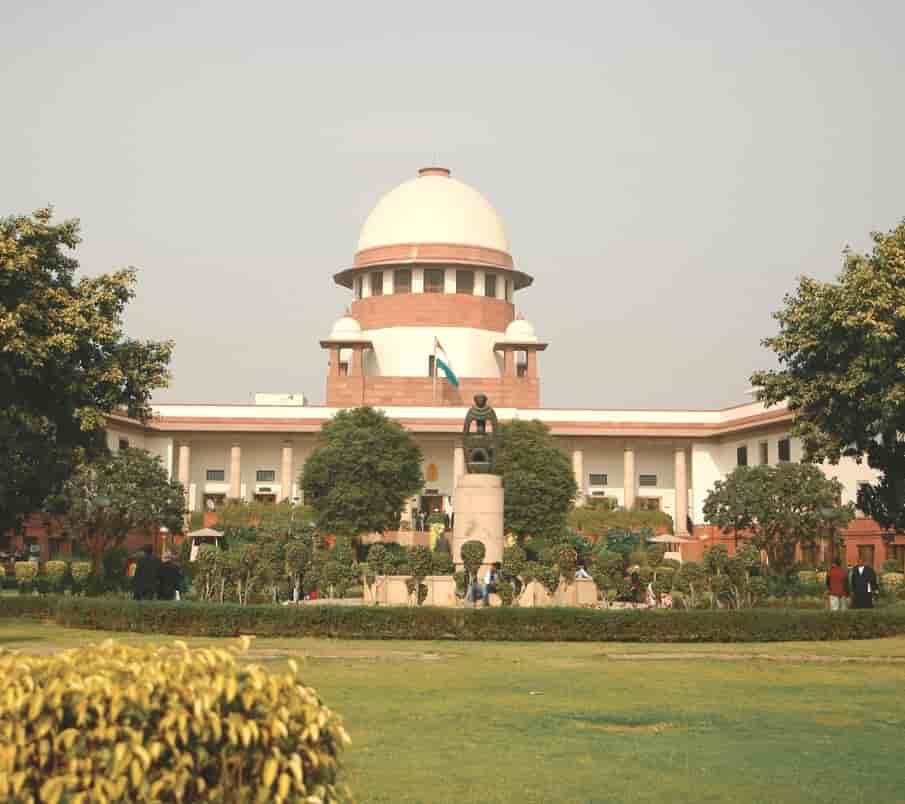In the case pertaining to the marriage equality case before the Supreme Court, petitioners have challenged the provisions of the Special Marriage Act 1954 that requires parties intending to marry for giving advance notice of 30 days, which will be published in the Registrar’s office inviting public objections.
The Petitioners have been seeking recognition for same-sex marriage as they challenge the provisions as violative of fundamental rights to privacy and decisional autonomy.
They added that the notice and objections expose couples who enter into non-traditional marriages to threats and violence from families and vigilante groups.
The Constitution Bench consisting Chief Justice of India DY Chandrachud, JusticeSanjay Kishan Kaul, Justice S Ravindra Bhat,Justive Hima Kohli and Justice PS Narasimha expressed agreement with the concerns raised by the petitioners.
Dr Abhishek Manu Singhvi, who appeared in the writ petition filed by Utkarsh Saxena and Ananya Kotia, said that couples opting to get married under as per the Hindu Marriage Act or personal laws are not mandated to give advance notice to the public.
The Special Marriage Act, which is a secular law, and is for the benefit of inter-faith couples, has such provisions.
He questioned that when no hetero sexual couple announces that they intend to marry then why should homo be subjected to it.
The petitioner said that It is his personal decisional autonomy. It’s the heart of his privacy to decide with whom he associate when, how, after how much time into matrimonial union- be it of the same sex or the opposite sex.
Justice Ravindra Bhat said that these provisions are based on patriarchy and were created when women didn’t have agency.
CJI DY Chandrachud stated that it is virtually laying them open to invasion by society..by Collectors, District Magistrates,Superintendent of Police.
Senior Advocate Raju Ramachandran, who appeared for lesbian couple Kajal and Bhawna, asked about the rationale behind these provisions of the Special Marriage Act.
He said that these provisions are indeed a relic of the British legislations which intended to prevent clandestine marriages and wondered how can they be placed in a protective legislation.
CJI Chandrachud said that these provisions deter the right to get married at a time when you desire to, it can’t be regarded as procedural because the impact is on your substantive right to get married at the time you choose.
CJI also observed that the provisions may not meet the test of proportionality, even if they are regarded as a measure to check if the couples are meeting the conditions of marriage, as there are other less restrictive means.
Ramachandran argued that this notice requirement amounts to requirement of giving a notice to exercise my fundamental rights. This 30 day notice is designed for parental bodies and other busy bodies to create roadblocks.
CJI opined that there is a very real likelihood that this will disproportionately affect situations in which one of the spouses either belongs to a marginalized community. This has a disproportionate impact on most vulnerable of society.
Ramachandran asserted that this would be equally true for heterosexual couples too”, Justice Hima Kohli weighed in.
In 2021, the Allahabad High Court had declared that these provisions of the Special Marriage Act are not mandatory as the mandate for advance notice violate right to privacy.



